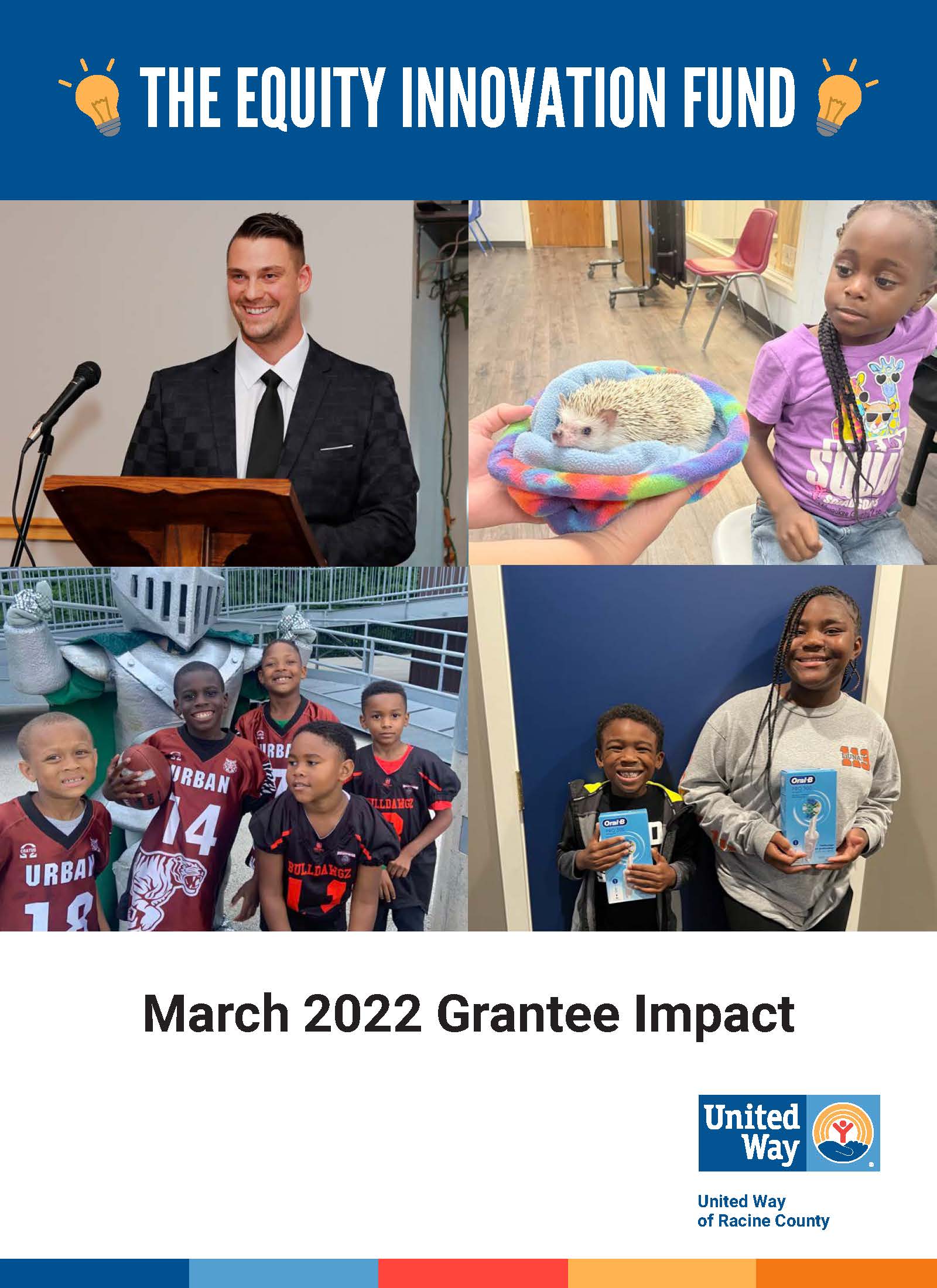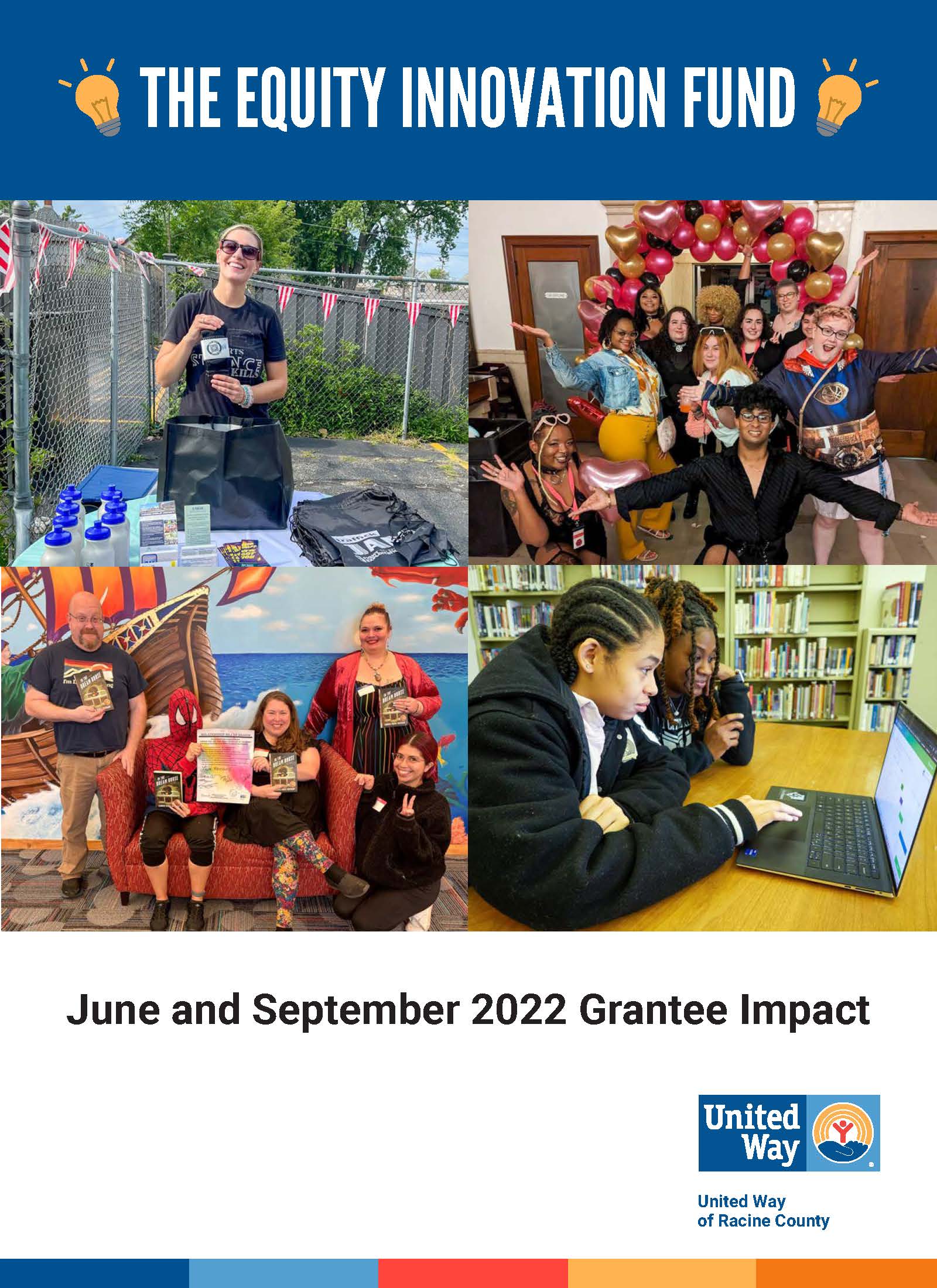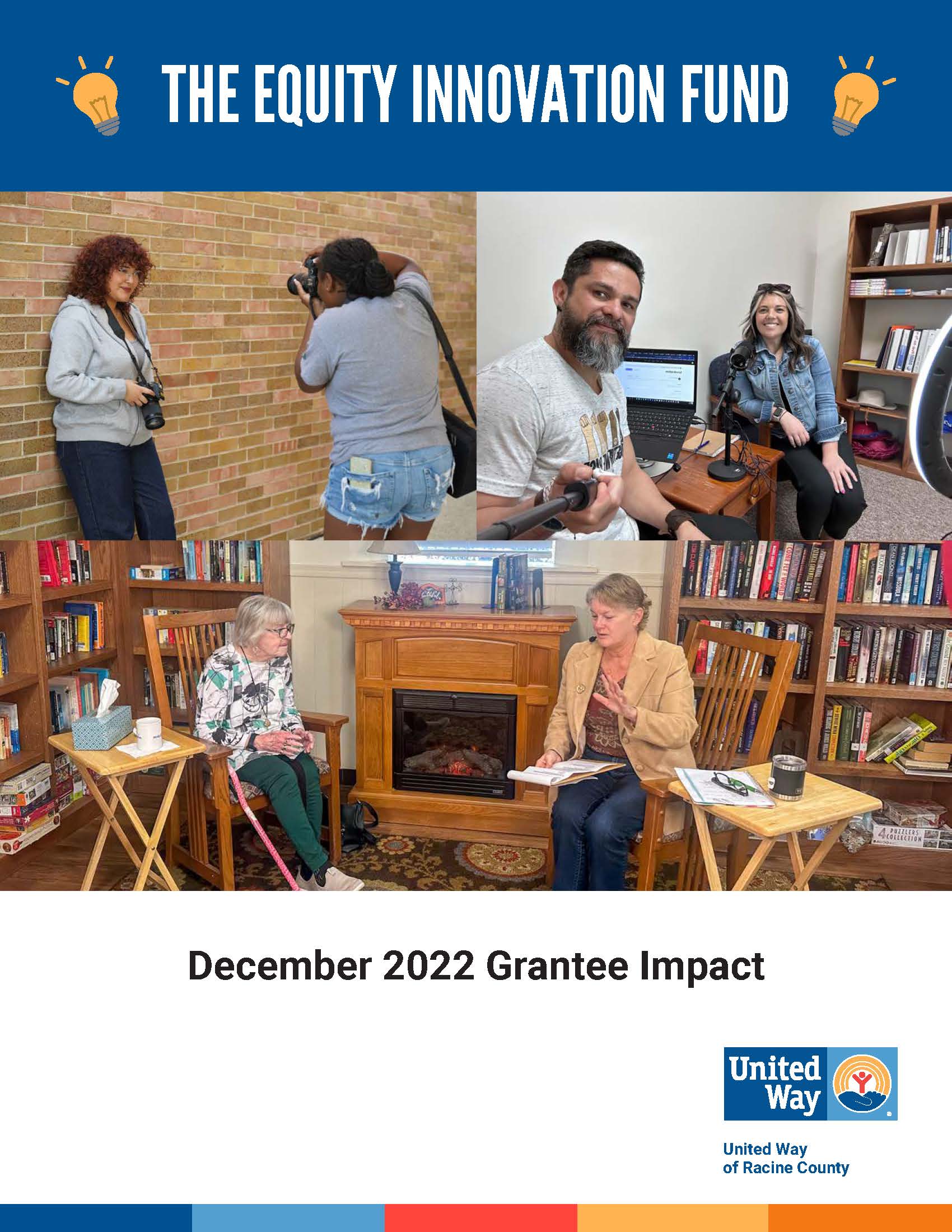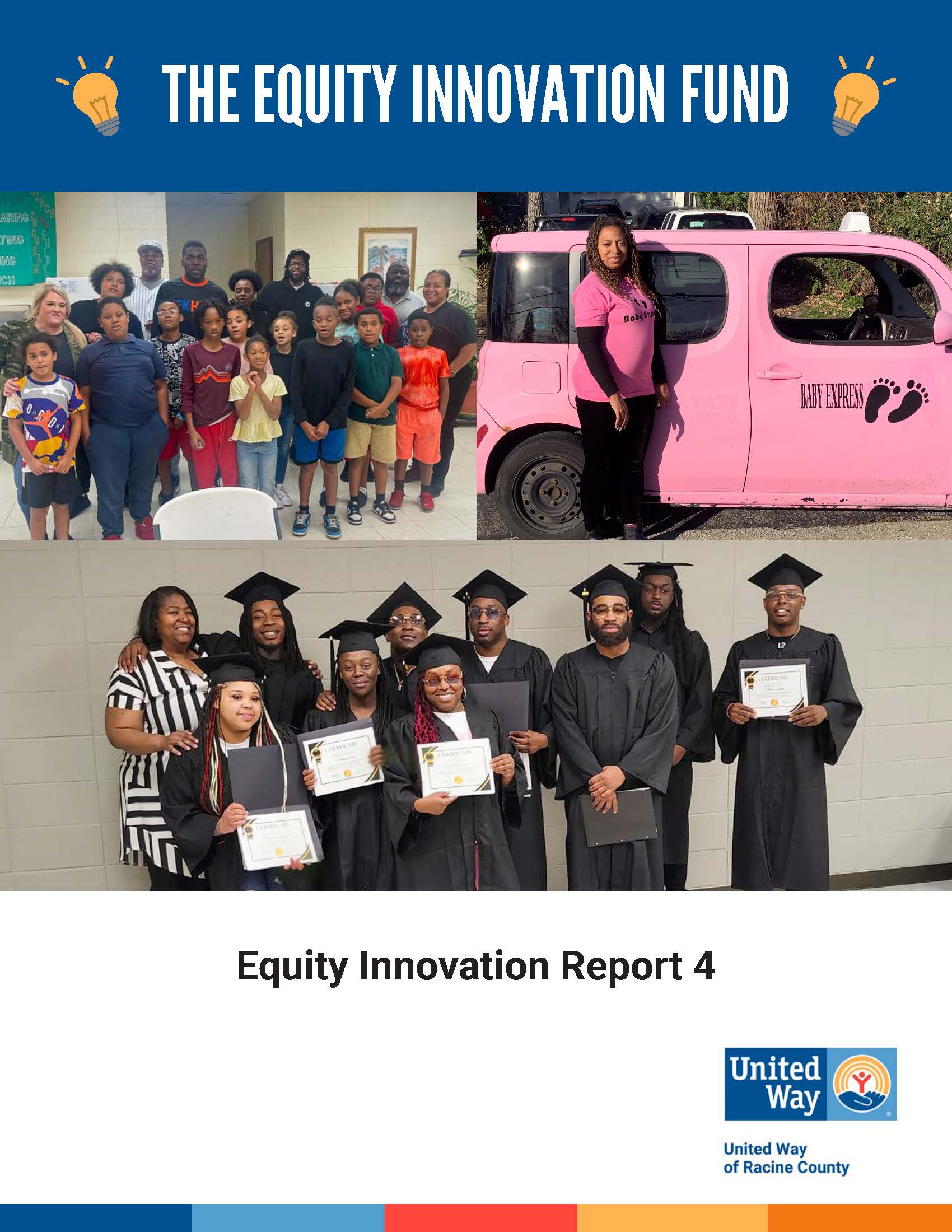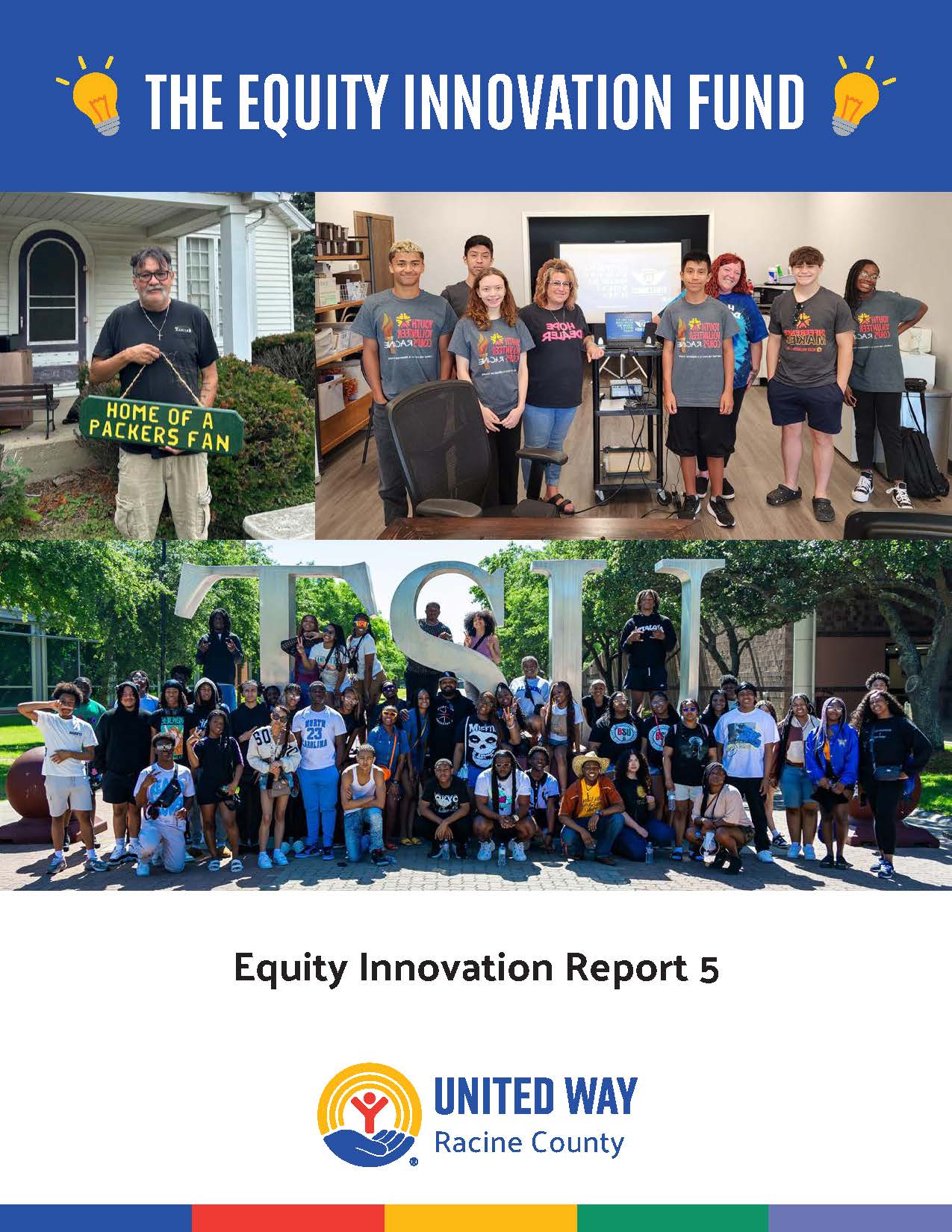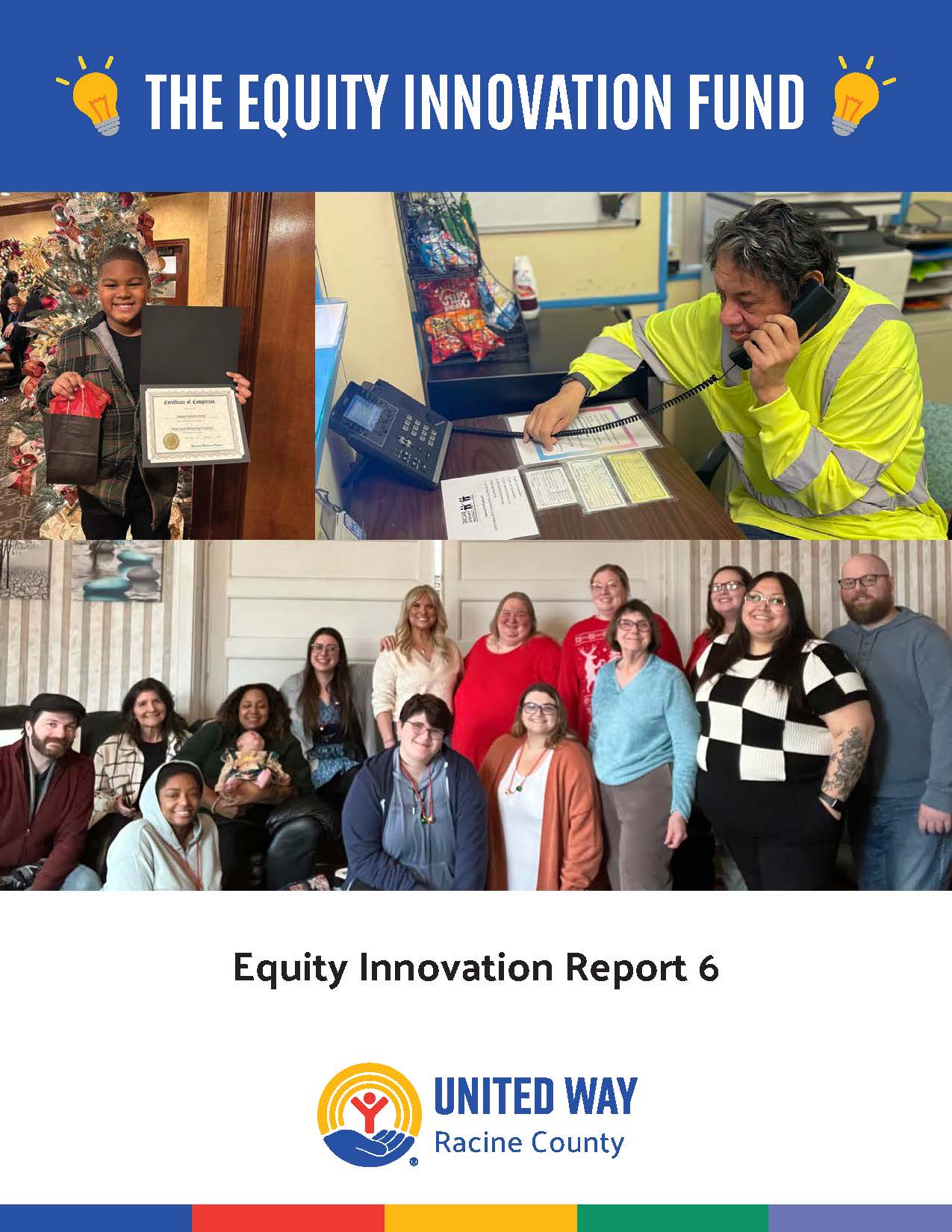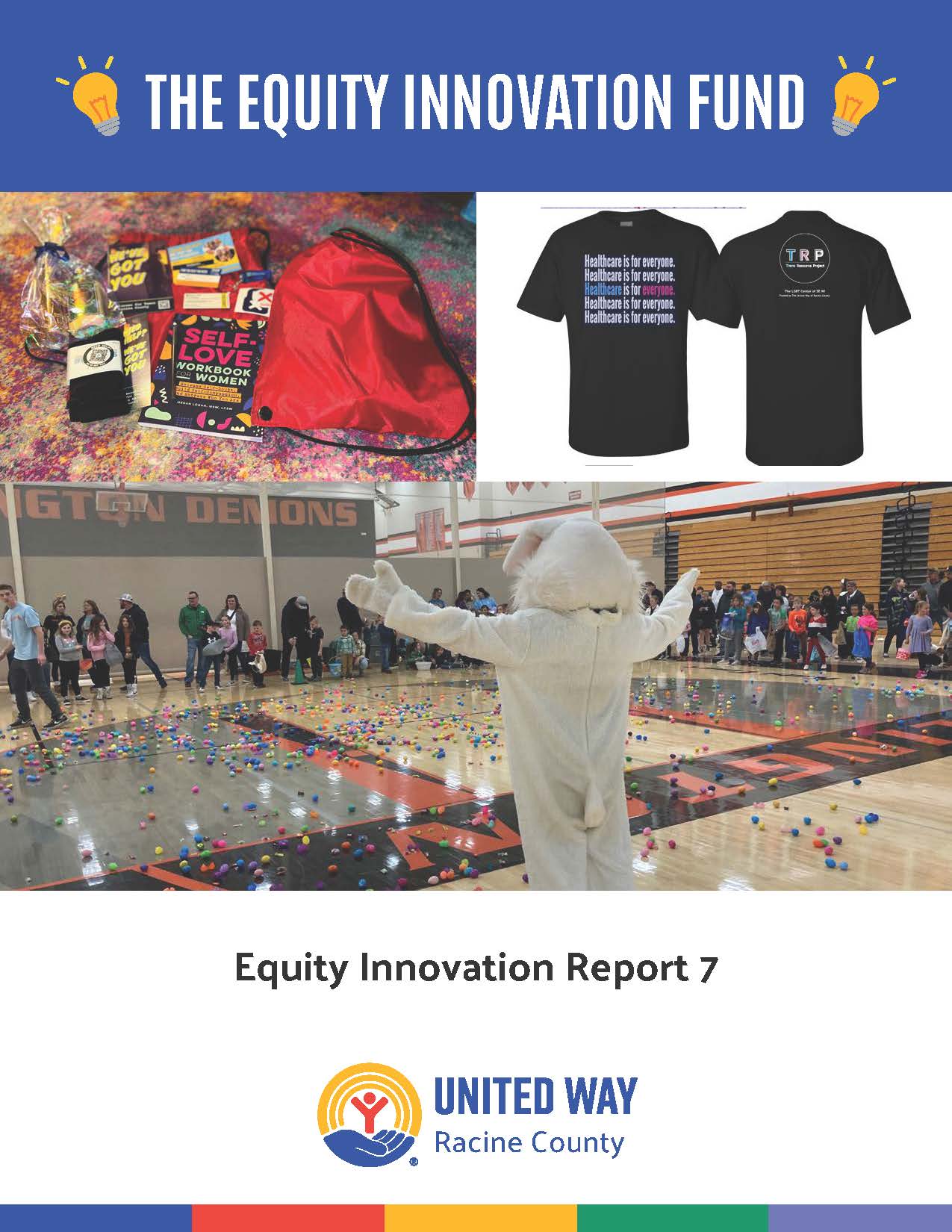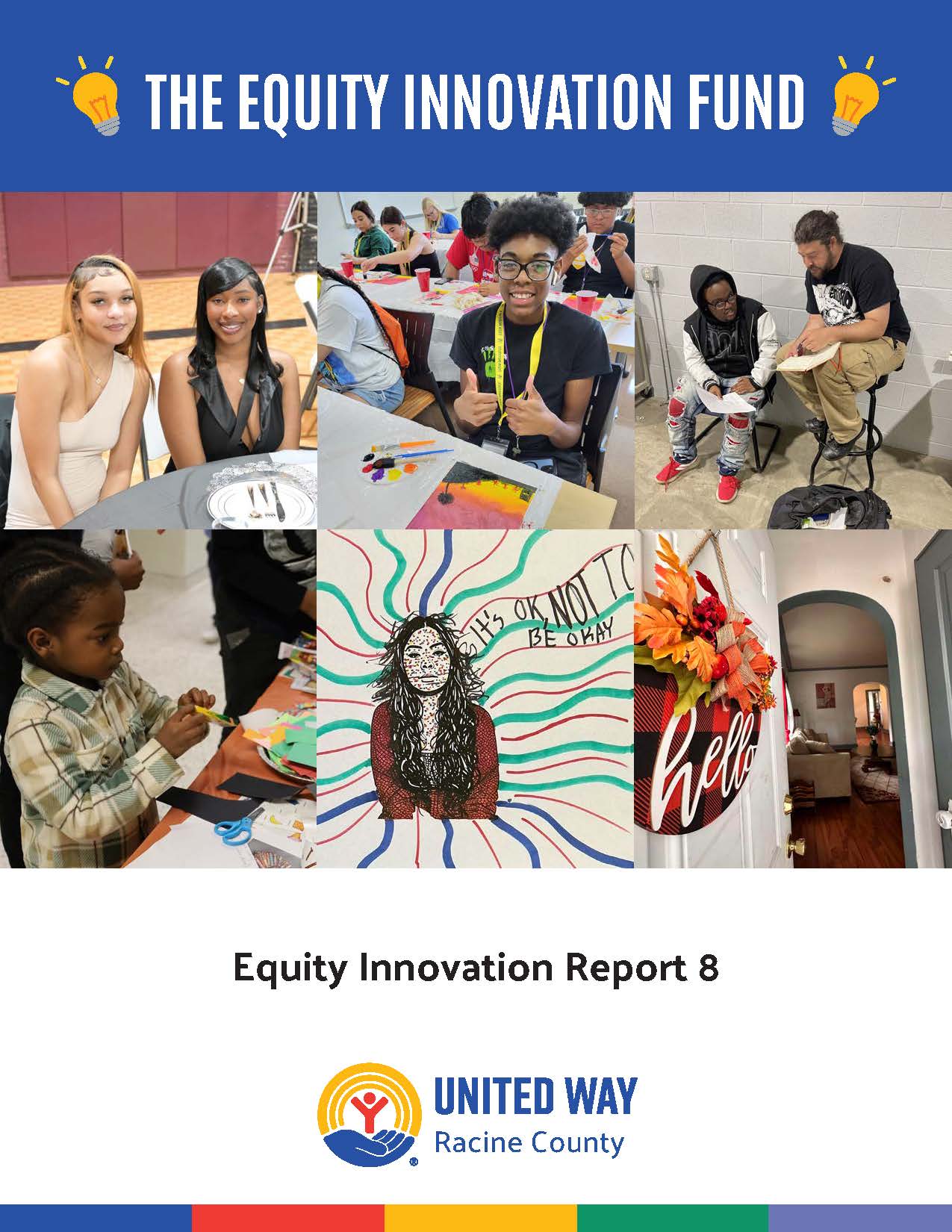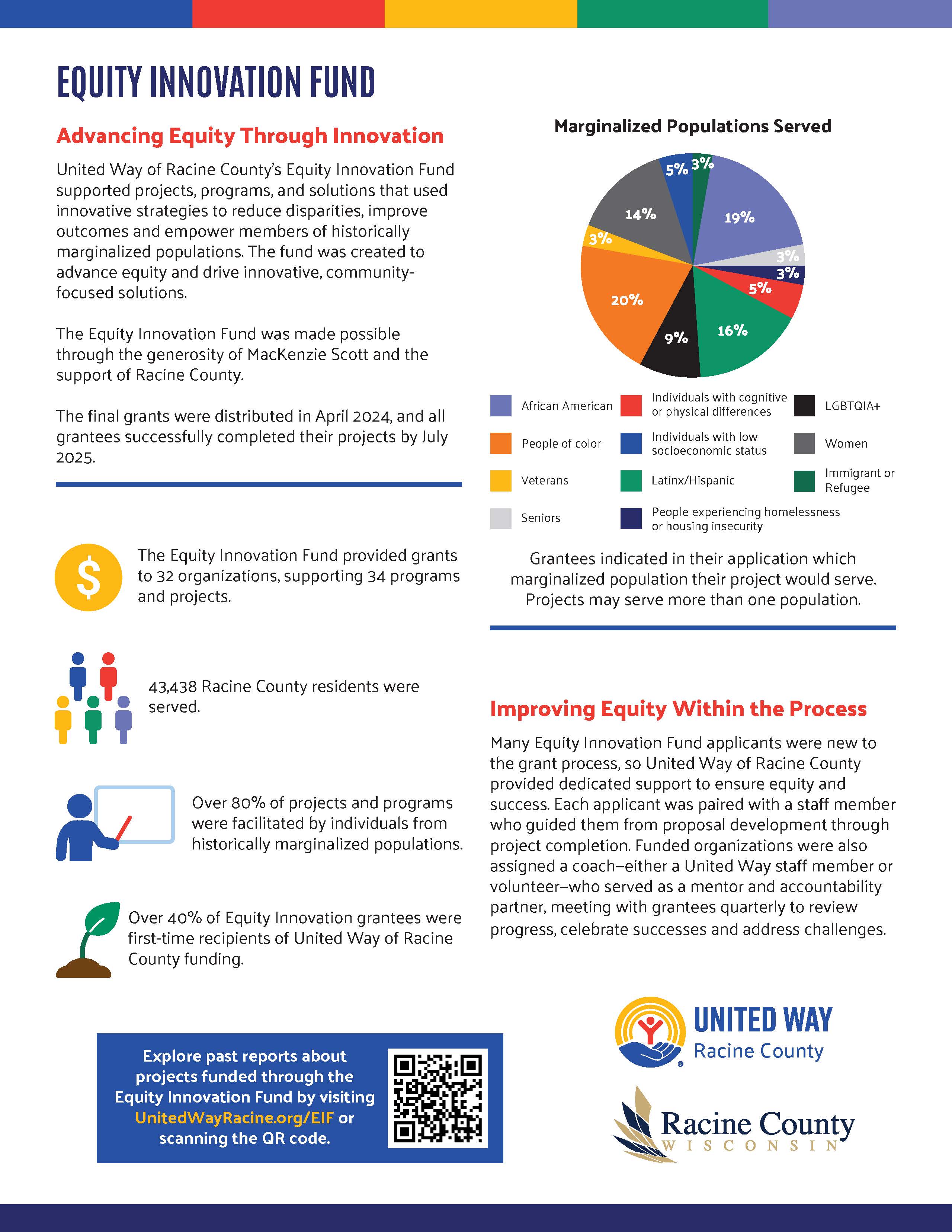
About the Fund
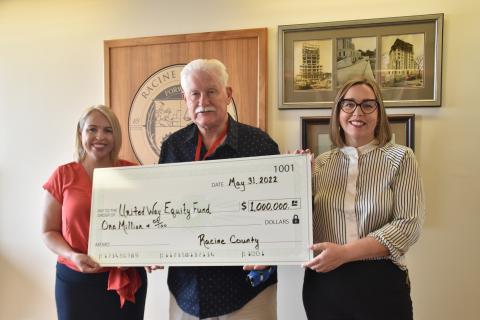
United Way of Racine County's Equity Innovation Fund supported projects, programs and solutions that used innovative strategies to reduce disparities, improve outcomes and empower members of historically marginalized populations. The fund was made possible through the generosity of novelist and philanthropist MacKenzie Scott, and through support from Racine County.
Equity Innovation Fund projects/programs addressed one or more of the following areas:
- Early childhood and kindergarten readiness
- K-12 academic and/or social emotional success
- Individual independence
- Individual and/or family stability
Grantee Impact
Read our Equity Innovation Fund reports to find out more about the impact Equity Innovation Fund grantees have been making:

